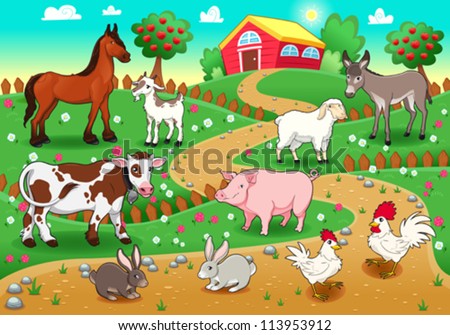*************************************************************************************************************************************

...Anurag Mathur
What is true of men and women is also true of animals.
There were lots of dogs in our Village, Muthukur. But all of them, in my 1950s, were street dogs. No one had a pet dog or poodle or Pomeranian or Dalmatian or a hundred such varieties.
So, all of us knew only one word for dog...Kukka....an onomatopoeic word descending from the Sanskrit Kukkura...sorry for that nasty word, onomatopoeia.
The one word, kukka, covered all dogs, male, female and urchins.
Not so the British who loved their dogs and kept them as pets. They have their dogs, bitches and pups.
If we had to refer to a female dog we had to say, "Aada Kukka", meaning a she-dog.
Also we didn't have in our Telugu the other nuance of 'bitch' and 'bitching'. Possibly our bitches didn't bitch as much as the British did. Or we didn't notice enough for transferring the words to the homo sapiens.
The use of the English 'bitch' was not considered genteel in print. So, Dorothy Parker, when she went tearing apart a female she didn't like, called her a "she-dog"...devious.

***************************************************************************************************************************

...Cousin sister and cousin brother, mused Sunil. I've really been away a long time. He remembered the wedding and the vast crowds of what were apparently his relatives. He recalled somewhere that all cultures developed a variety of names to distinguish the shadings of any element of which there was an abundance in the environment. So the Eskimos apparently had half a dozen names for snow and Indians similarly had names for a variety of endless number of specific relationships. The name for a father's elder brother was different from that for his younger brother and so were the names for the mother's brothers. It probably developed from the joint family system where everybody lived together, thought Sunil. When a kid wanted someone, he couldn't just yell for his uncle. The house was probably crawling with uncles. He had to specify which uncle.
It's probably a good indication of the areas in which a society lays the greatest emphasis, he thought....
...Anurag Mathur
What is true of men and women is also true of animals.
There were lots of dogs in our Village, Muthukur. But all of them, in my 1950s, were street dogs. No one had a pet dog or poodle or Pomeranian or Dalmatian or a hundred such varieties.
So, all of us knew only one word for dog...Kukka....an onomatopoeic word descending from the Sanskrit Kukkura...sorry for that nasty word, onomatopoeia.
The one word, kukka, covered all dogs, male, female and urchins.
Not so the British who loved their dogs and kept them as pets. They have their dogs, bitches and pups.
If we had to refer to a female dog we had to say, "Aada Kukka", meaning a she-dog.
Also we didn't have in our Telugu the other nuance of 'bitch' and 'bitching'. Possibly our bitches didn't bitch as much as the British did. Or we didn't notice enough for transferring the words to the homo sapiens.
The use of the English 'bitch' was not considered genteel in print. So, Dorothy Parker, when she went tearing apart a female she didn't like, called her a "she-dog"...devious.
So with horses. We did have a couple of horses in Muthukur but they were lean and hungry and were occasionally used for pulling carts. So we called all horses, male, female, and kids, by the single word, Gurram, which unfortunately happens to be my surname...that's a different story.
But the British are a racing nation. So they have 'horse', 'mare', 'colt', 'stud' and the 'stallion' of Lady Chatterley.
With cows it is a little different. We milked our cows and used their husbands to draw our carts and plow our fields...animal husbandry. And we were fond of their kids since we reared them in our goshalas...cow-sheds. So, we have 'Aaavu', 'Eddu' and 'Dooda' respectively.
The British also love their cows...they eat them. So, they have cows, bulls which they fight, and calves which also refer to their lower-leg muscles, I don't know why.
With buffaloes it looks different. Buffalo is native to India and is revered as the harbinger of our 'white revolution' although most buffaloes are jet black. So we have 'Barre', again onomatopoeic, for the female, 'Dunna' for the male which drew our carts and plowed our fields.
On the other hand the British apparently don't love their black buffaloes much...another instance of their racism. So they have to say, 'he-buffalo' and 'she-buffalo' and perhaps 'it-buffalo'...a strange nation and a strange tongue.
I think by now I have extended, like some of our M.Tech. theses did, the 'diversity-theory' of Anurag Mathur...whatever happened to him?
We were never called 'Barre!' in anger by our school teachers. We were called:
"Dunna Potha!"
when they tired of calling us "Gadida!" (donkey).
I don't really know why the male is more opprobrious than the female, although, as usual, it is the female of the species which, as that typical empire-loving Britisher Rudyard Kipling have us believe, is the more deadly.
Buffaloes of both sexes are inordinately fond of wallowing in neck-deep water by the wayside. Ishani loves the sight and her dad has to halt his car for a good minute till she has fully taken in the blessed sight.
I guess it has something to do with Black Body Radiation.
We did have pigs in our village but none of them as pets. So we called all of them, 'Pandi'.
Not so the British...they have the pig and the sow and the piglet.
And Lord Emsworth loved his Empress of Blandings for the prizes she fetched him, maybe because the sows of England are more hearty eaters than their husbands.
Well, when our class work was too dirty for her taste, our teacher called us:
"Pandi!"
The Empress of Blandings has her own Wiki page...that says much of Wiki as well:
wiki
...Posted by Ishani
***************************************************************************************************************************

No comments:
Post a Comment